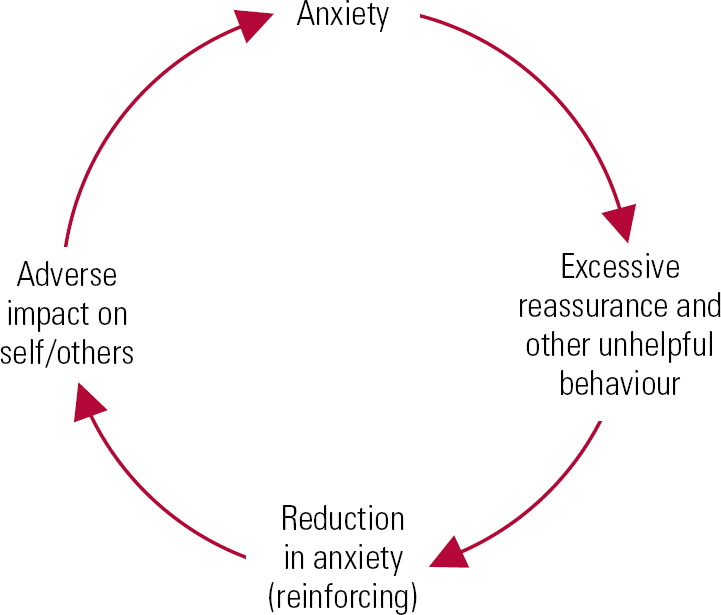Seeking excessive reassurance is a very common coping strategy for those that get anxious about things. Reassurance can come from the self, from others, or from things like the internet, and examples can include asking friends or family members for their opinion, speaking to medical staff, such as your GP, midwife, or health visitor, excessive googling and internet searches, and bodily checking. Typically, when you feel anxious, you may do something to try and make you feel better. This is what we call a coping strategy.
Let’s look at an example. You’re feeling anxious that you’ve left your hair straighteners on. You have a vivid image pop into your head of the straighteners on the carpets, causing a fire and your whole bedroom is set ablaze. What do you get the urge to do? The chances are, your answer is to go and check, and that is logical if your thought/worry is true. The checking will likely make you feel better when you noticed that the straighteners are off, unplugged and placed safely on your heatproof mat.
When the above starts to become unhelpful is when each time a worry or anxious thought pops into your head, you will likely feel anxiety, and the anxiety will only tend to improve once you’ve got your reassurance. Until the next worry pops up. Did I lock the front door? What if the baby has rolled over in her cot and can’t breathe? What if this patch of dark skin is something sinister? All these thoughts can make you anxious, and the anxiety can lead you to need reassurance that you are ok, that you are safe, and that nothing is wrong.
What are the disadvantages of needing reassurance when anxious?
Reassurance can be like a drug – the more you get, the more you need. I’ve worked with people that have needed so much reassurance from their family member that their relationships have become strained. Family members can unwittingly collude with your anxiety because they don’t like to see you distressed so they can give you the reassurance they know you need to calm you down.
The problem with this is that getting reassurance from others increases your doubt and decreases your confidence in your own judgement. So, reassurance, like many things we work on in CBT, becomes a vicious cycle. The initial solution (getting reassurance to make you feel better) has become a problem (because you are likely unable to cope with your anxiety without getting that reassurance).
With anxiety relating to health, reassurance can be a problem because it can only tell you what the problem isn’t, not what the problem is. Also, the effectiveness of reassurance tends to be very short-lived, with some getting to the point that they start to doubt medical professionals or worry that something may have been missed.
How can I stop getting reassurance?
The first step is to acknowledge it. The more you can identify when you are needing it, the better you’ll be able to try and make small but effective changes. When you have noticed it, try and delay getting the reassurance from wherever you would typically get it from. Try and sit with the anxiety, and the uncertainty of whatever is making you anxious. This can be hard, but practice makes progress, so keep trying and gradually increasing the time from when you are wanting to get that reassurance to when you get it. Your end goal is to try and reduce reassurance seeking as much as possible, so that you can learn to improve on your confidence and to reduce your self-doubt.
It might take a while to notice a difference, and you may find that you feel more anxious initially. That is completely normal! Not nice for you, but expected. The more you persevere, the more you will be able to overcome the need to get excessive reassurance, leading to you starting to rely more on your own judgement.
Useful Links:
Can Childhood Adversity Cause Anxiety?
